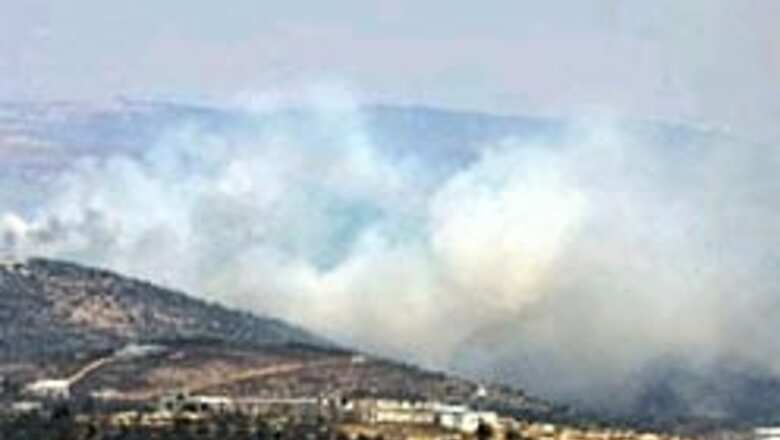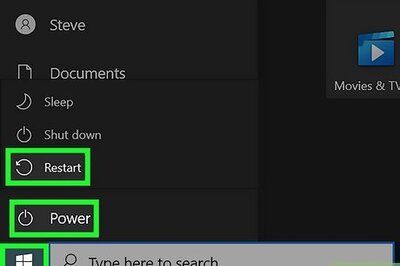
views
Lebanon: Heavy ground fighting raged on Tuesday near a Lebanese border village, and Israel resumed frequent airstrikes after it decided, in a major expansion of its offensive, to send thousands more troops deeper into Lebanon.
The soldiers will go as far as the Litani River, 18 miles from the Israeli border, to clear out Hezbollah fighters and hold the territory until a multinational force is deployed there, senior Israeli officials said on Tuesday.
The resumption of the Israeli air campaign against Hezbollah strongholds and supply routes came despite an earlier pledge to suspend such attacks for another day.
That 48-hour suspension was announced after the world expressed outrage over the killing of 56 Lebanese - mostly women and children - in a weekend Israeli bombing.
On Tuesday, warplanes pounded Shiite villages in south Lebanon and struck Hezbollah strongholds deep inside the country.
Intense gun battles also were reported in several south Lebanon villages, and Hezbollah said four of its fighters were killed. The guerrilla group claimed that 35 Israeli soldiers had been killed or wounded in the fighting, but Israel had no immediate public comment.
The heaviest fighting centered on the Lebanese border village of Aita al-Shaab. Arab satellite channels carried live pictures as Israeli forces unleashed a relentless bombardment of artillery shells on the town, from which Hezbollah guerrillas crossed the border on July 12 and captured two Israeli soldiers, sparking the crisis.
Diplomatic efforts to end the crisis have faltered, despite increased world pressure for a cease-fire after the devastating weekend strike in the town of Qana.
Israeli Prime Minister Ehud Olmert said on Tuesday that it was not in Israel's interest to agree to an immediate cease-fire because every day of fighting weakens Hezbollah.
''Every additional day is a day that drains the strength of this cruel enemy. Every extra day is a day in which the army reduces their capability, contains their firing ability and their ability to hit in the future,'' he said.
Olmert expressed hopes that a cease-fire would be based on a formula that would push Hezbollah away from Israel's border and prevent it from attacking in the future.
''We are at the start of a diplomatic process that I believe will lead in the end to a cease-fire under totally different conditions from those which existed previously on our northern border, which will provide a real buffer between us and those who would take our lives, with international support such as there has never been before,'' he said.
''We will agree to a cease-fire when we know for certain that conditions in the field have changed from those that would cause a war to break out,'' he said.
President Bush also resisted calls for an immediate halt to fighting, saying any peace deal must ensure that Hezbollah is crippled. He said Iran and Syria must stop backing the Shiite militant group with money and weapons.
''As we work with friends and allies, it's important to remember this crisis began with Hezbollah's unprovoked attacks against Israel. Israel is exercising its right to defend itself,'' Bush said.
Israel made the decision to expand the ground offensive at a meeting late Monday of its Security Cabinet.
Up to now, several thousand soldiers had been engaged, fighting house-to-house battles with hundreds of Hezbollah fighters in Lebanese towns and villages close to the border.
Last week, the Cabinet called up some 30,000-reserve soldiers, many of whom reported to their bases earlier this week to begin training.



















Comments
0 comment